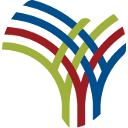
As the year draws to a close, The New Times looks at the significant changes witnessed within the education sector over the past twelve months.
These changes range from advanced technical programs to revamped school initiatives and innovative examination methods, each contributing to the elevation of education quality and the cultivation of skilled, capable students.
BTech Programs Introduced for TVET Graduates
The government’s dedication to evolving into a knowledge-based economy by 2035 has spurred remarkable changes in the Technical and Vocational Education and Training (TVET) sector.
ALSO READ: Why TVET students can’t wait to start new courses in Bachelor of Technology
In March, Rwanda Polytechnique (RP) inaugurated BTech programs, commencing with Automobile Technology and Construction Technology. Subsequently, in September, an additional five BTech programs were launched, encompassing Manufacturing Technology, Wood Technology, Electrical Technology, Food Processing, and Information Technology.
ALSO READ: Rwanda Polytechnic expands academic offerings with five cutting-edge BTech programmes
Revamped School Feeding Program
The year 2023 witnessed districts taking charge of procuring food, water, and electricity for schools. This significant shift aims to alleviate budgetary strains on schools, allowing them to prioritize teaching and learning. It addresses the challenges schools face in sustaining feeding programs due to fluctuating market prices.
ALSO READ: Step towards better nutrition: How East Africa could unlock school feeding programme success
With districts managing allocated budgets for these essentials, schools can function more efficiently, unencumbered by market instabilities.
Adoption of Revised Schooling Hours
In January 2023, a new set of schooling hours was officially rolled out, initiating classes at 8:30 a.m., a departure from the previous 7 a.m. start time. This change, mandated by a November 11, 2022 cabinet resolution, aimed to enhance education quality while improving workplace productivity and family well-being.
ALSO READ: Implementation of new schooling hours gets underway
Encouraging feedback from parents and educators highlights improved parenting and reduced physical exhaustion for young children under the adjusted schedule.
Introduction of Starlink Internet in Schools
Starting in February, select Rwandan schools gained access to high-speed satellite internet through Elon Musk’s Starlink project. As part of SpaceX’s satellite network, Starlink offers low-cost internet access to remote locations, with a prioritization of schools.
ALSO READ: Starlink internet to be piloted in 500 schools
This initiative aligns with efforts to bridge the digital divide, ensuring reliable connectivity for educational institutions, empowering both students and educators equally.
Alternative Practical Exams for Science Students
The National Examination and School Inspection Authority (NESA) introduced novel changes for science students in national exams. Departing from traditional practical exams, students now undergo alternative practical exams, an innovative approach catering to diverse educational backgrounds.
ALSO READ: Science students to undertake alternative practical exams – official
Bernard Bahati, Director-General of NESA, elaborates that these exams assess practical knowledge through theoretical demonstrations on paper, eliminating the need for apparatus.